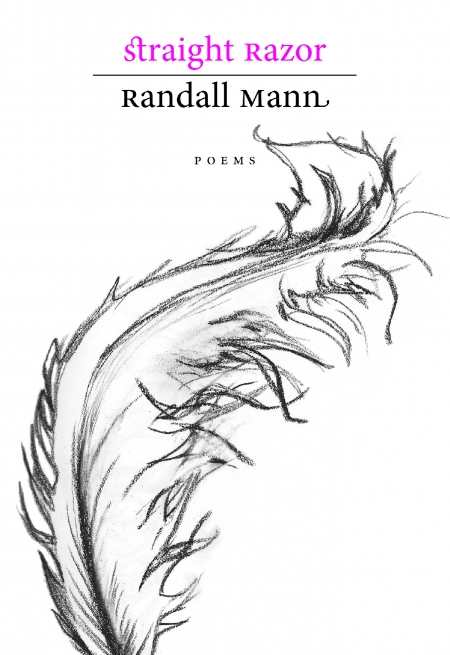Straight Razor
Evoking masculine, dangerously intimate, polished surfaces, Straight Razor reveals libidinous encounters, elegies, and satires on careerism in poetry.
San Francisco-based Randall Mann, author of Complaint in the Garden and Breakfast with Thom Gunn, both Kenyon Review prize winners, returns with his third collection, Straight Razor. It contains formal, brittle portraits of men whose cool exteriors bely pain (“I left so many / anonymous denunciations in the lion’s mouth”), as well as conflicting realizations (“I am so sick / of pretending to be me”). Writing about cruising for love in the ’90s, Mann deftly complicates Bacchanalian scenes with shaded emotions. Candor in physical freedom blends with foreboding, both in anticipation of pleasure and in its wake, turning poems on eros into more brutal missives.
Wit, rhyme, an inclusive eye for references that range from Greco-Roman mythology to voguing, and images of commercial landscapes spark amid themes of longing and absence. Speakers engage in sex while guarding against complete exposure. As one speaker notes, “In bed, we only play together, because / this is the way we elude each other.” Similar tension between attraction and the impossibility of deeper connection recurs: a bar bathroom escapade takes place as a drag queen cautions not to hold out for love; a speaker who begins with “good intentions on a date” finds that “what stays, like some insipid trick, is fear”; in another poem, a speaker invites the viewer to approach, yet concludes, “Just promise me you’ll keep / your mouth away from mine”; and at other times, relationships devolve into violence. Such distanced approaches to the contemporary hookup become surprisingly moving glimpses of figures caught in uncertainty.
The collection is not entirely dark, however. Mann also employs sometimes winking and sometimes self-eviscerating humor as a counterweight, using references to the writing life (“My bio note reminds / the groupies not to stare”), descriptions of fashion, linguistic joy (best exemplified in “Falling Asleep Over ‘Falling Asleep Over the Aenid’”), and the fusion of the persona-as-poet with the persona-as-party-goer in “Translation,” a poem that delights as it skates between banter and the lure of expectation.
The poems that beguile most, however, set aside the duct tape, threats, and overt humor, and instead consider traces of a fragile existence. *Straight Razor’*s standouts include “The Fall of 1992,” a recollection of early adulthood; “India,” a poem penned for a hair stylist; and “Elegy,” a portrait of an aunt. In these poems, American kitsch and beauty fuse, leaving impressions of a specific time and place that echo with loss.
Reviewed by
Karen Rigby
Disclosure: This article is not an endorsement, but a review. The publisher of this book provided free copies of the book to have their book reviewed by a professional reviewer. No fee was paid by the publisher for this review. Foreword Reviews only recommends books that we love. Foreword Magazine, Inc. is disclosing this in accordance with the Federal Trade Commission’s 16 CFR, Part 255.

